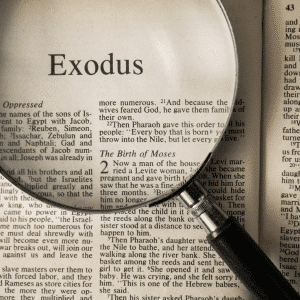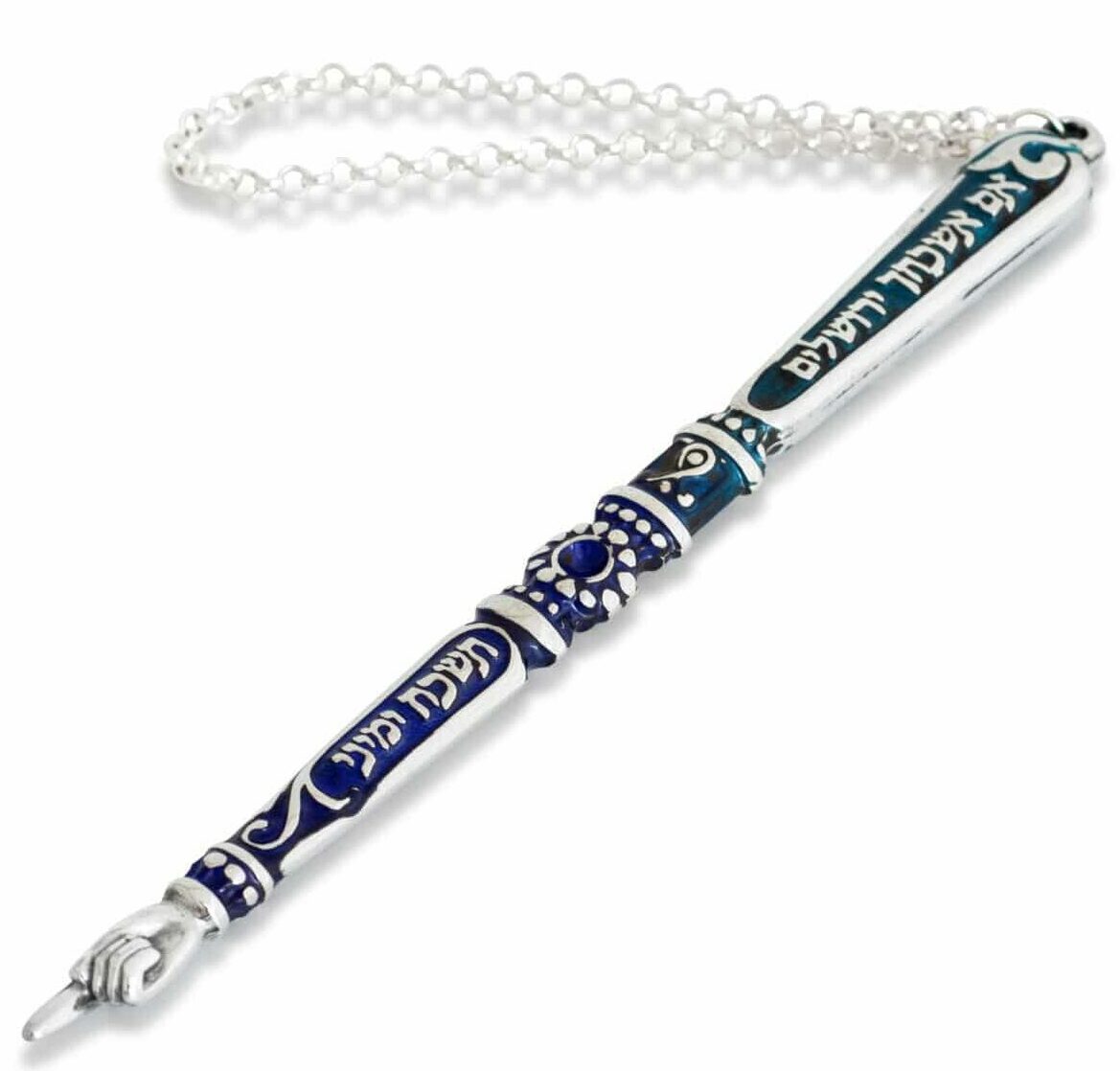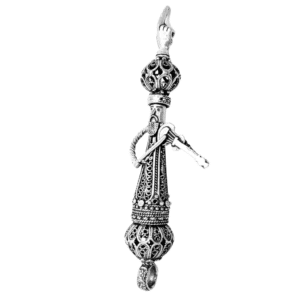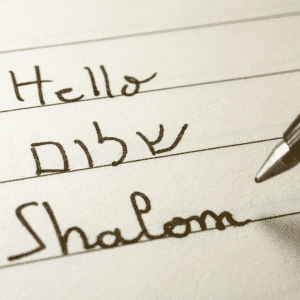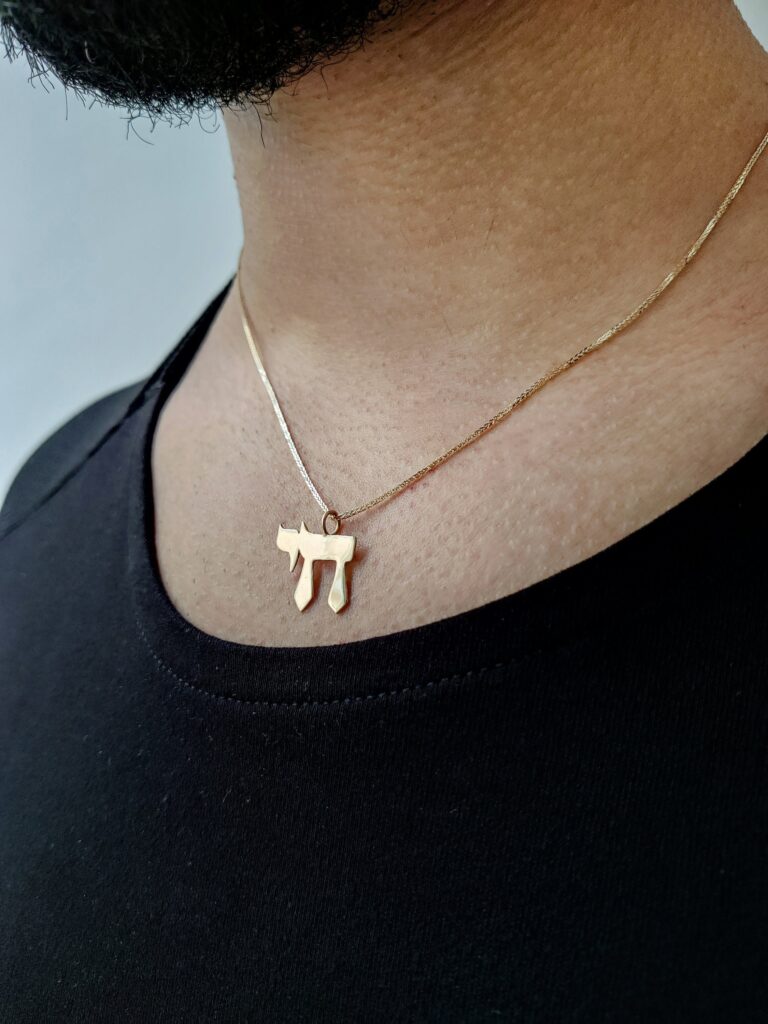
In this blog post, we will take an in-depth look at everything you need to know about the Hebrew Bible – its origins, contents, relevance today, and how it continues to influence Jewish culture in profound ways.
Whether you are new to Judaism or seeking a deeper understanding of your own heritage, this post aims to enlighten and enrich your knowledge of this cherished text. So let’s dive into the rich history of the Hebrew Bible and discover why it remains relevant even after thousands of years since its creation.
To hear the entire article for your convenience, click the play button.
The Hebrew Bible
The Bible is divided into three parts: the Torah (also referred to as the Pentateuch or Five Books of Moses), Neviʾim (Prophets), and Ketuvim (Writings). The Torah consists of the first five books: Genesis, Exodus, Leviticus, Numbers, and Deuteronomy. These books contain the stories of creation, the exodus from Egypt under Moses’ leadership, and other important events in Jewish history up until their entrance into Canaan.
What are the first 5 books of the Hebrew Bible?
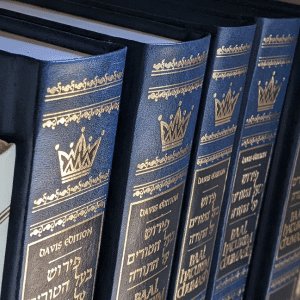
At its core, the Hebrew Bible consists of several primary books that form the foundation of this revered scripture. These books include Genesis, Exodus, Leviticus, Numbers, and Deuteronomy – collectively known as the Pentateuch or the Five Books of Moses.
Each book within the Hebrew Bible offers unique insights into matters of faith, morality, history, and civilization. From powerful narratives that trace humanity’s origins to intricate laws and codes that shape religious practice – every word holds immense value and meaning.
How Many Books in the Hebrew Bible
Ah, the Hebrew Bible! A treasure trove of ancient wisdom and captivating tales. Now, you may be wondering just how many books make up this monumental text. Well, get ready to be amazed! The Hebrew Bible consists of a total of 24 books.
These books are divided into three main sections: the Torah (or the five books of Moses), the Nevi’im (the prophets), and the Ketuvim (the writings). Each section offers a unique glimpse into historical events, moral teachings, and spiritual insight. So whether you’re diving into Genesis or delving into Chronicles, get ready for an enriching journey through the pages of the Hebrew Bible!
Primary Books

Explore the timeless wisdom of the Torah – the Five Books of Moses. Genesis, Exodus, Leviticus, Numbers, and Deuteronomy come together to unravel captivating stories of creation, ancient Israelites, and moral guidance. Immerse yourself in this sacred text penned by Moses himself, revealing the secrets of life, faith, and ethical living.
The Prophets section includes Joshua, Judges, Samuel (1 & 2), Kings (1 & 2), Isaiah, Jeremiah, Ezekiel and twelve smaller prophetic books. These texts contain historical accounts of Israel’s monarchy as well as messages from prophets who were called to communicate with God’s word to the people.
Each book within The Hebrew Bible provides unique insights into ancient Hebrew culture, values and religious beliefs. They continue to be studied by scholars around the world as well as being read devotionally by countless individuals seeking spiritual guidance from its sacred text.
Here’s an expanded look at the significant books in each section:
Torah
- Exodus: This book tells of Moses’s life, the liberation of the Jews from Egyptian slavery, the covenant at Sinai, and the detailed laws for the community. It is named after the grand event of the Exodus, marking the birth of the Israelites as a nation.
- Leviticus: Leviticus primarily deals with religious laws, rituals, and priestly conduct. It covers topics like sacrifices, purity, atonement, and holiness, reflecting the religious life of ancient Israel.
- Numbers: This book is named after the censuses of Israelites. The story weaves accounts of their wilderness journey from Sinai to the plains of Moab, their trials, complaints, blessings, and rebellions.
- Deuteronomy: The final book of the Torah is a series of speeches by Moses on the verge of entering the Promised Land. It includes a recap of their journey, a restatement of the Law, and Moses’s final blessings and death.
To view our entire collection of Torah Pointers To read the Torah
Nevi’im
The Nevi’im, or the Prophets, are categorized into two sections: the Former Prophets (narrative histories) and the Latter Prophets (prophetic writings).
The Former Prophets include Joshua, Samuel, Judges, and Kings, depicting the conquest of Canaan to the exile of Judah.
The Latter Prophets, including Isaiah, Jeremiah, Ezekiel, and the Twelve Minor Prophets, deliver powerful messages of warning, hope, and divine judgment.
To see our entire collection of Kosher Torah Scroll.
Ketuvim
The Ketuvim, or the Writings, contains a diverse range of books:
- Psalms: A collection of 150 poems meant to be sung, expressing a wide range of human emotions and experiences.
- Proverbs: A book of wisdom sayings and moral teachings, often attributed to King Solomon.
- Job: A profound dialogue on suffering and righteousness.
- Song of Songs: An allegorical love song between a bride and groom.
- Ruth: A heartwarming story of loyalty, love, and redemption.
- Lamentations: A collection of laments over the destruction of Jerusalem.
- Ecclesiastes: A philosophical treatise on the meaning of life.
- Esther: The story of Queen Esther, who saves her people from genocide.
- Daniel: A book of visions and prophecies featuring the famous story of Daniel in the lion’s den.
- Ezra-Nehemiah: Chronicles of the return from Babylonian exile and the rebuilding of the Temple and Jerusalem.
- Chronicles: A retelling of the narratives in Samuel and Kings from a different perspective.
Impact of the Hebrew Bible
Influence on Judaism
Undeniably, the Hebrew Bible forms the backbone of Judaism. It guides religious practice, shapes cultural norms, and offers wisdom for life’s many challenges.
Influence on Christianity
Beyond Judaism, the Hebrew Bible profoundly influenced Christianity, serving as the Old Testament in Christian Bibles and laying the groundwork for the New Testament’s teachings.
Influence on Western Culture
The Hebrew Bible’s narratives, moral teachings, and historical accounts have left indelible marks on Western literature, law, art, and thought.
Check here for unique products in the Jewish religious items category.
Is the Hebrew Bible different from the Bible?
The Hebrew Bible is the same as the Old Testament in Christianity. The New Testament of Christianity contains 27 books not found in the Hebrew Bible, and these books are considered sacred only within the Christian faith tradition.
Why is the Hebrew Bible so important?
For Jews, the Hebrew Bible is authoritative Scripture that defines their beliefs, moral codes, and practices. It gives them an understanding of their history and identity. For Christians, the Hebrew Bible is essential to comprehend the teachings of Jesus in the New Testament. The ethical principles it contains also guide people from all faiths and backgrounds.
Why is the Hebrew Bible Important in History?
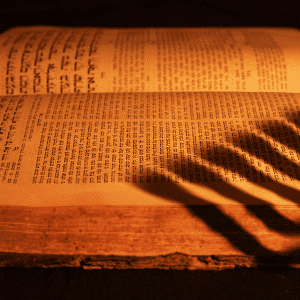
One reason why the Hebrew Bible is important in history is its role in preserving ancient Hebrew culture and traditions. It provides insights into the lives of ancient Israelites, their customs, laws, and religious rituals. The narratives found within its pages shed light on significant historical events such as the Exodus from Egypt, the establishment of monarchy in Israel, and the Babylonian exile.
Additionally, the Hebrew Bible contains a vast collection of wisdom literature and ethical teachings that have had a profound impact on Western civilization. Its moral precepts have influenced legal systems, social norms, and philosophical thought for centuries.
Furthermore, this ancient text carries immense religious significance. For Jews, it is considered sacred scripture that outlines their covenant with God and details their history as a chosen people. Meanwhile, for Christians who recognize both the Old and New Testaments as scripture, it provides important theological foundations for understanding Jesus Christ’s life and teachings.
Beyond its religious importance, scholars worldwide study the Hebrew Bible for its linguistic value. The texts are written in ancient languages such as Hebrew and Aramaic which provide valuable insights into language development over millennia.
The Hebrew Bible continues to be a source of inspiration, providing rich narratives that offer insight into our past while guiding us to live meaningful lives in the present.
What religion follows the Hebrew Bible?
The Hebrew Bible is the primary holy text of Judaism and forms the basis for the Christian faith. It is also revered by Muslims, as Islam affirms that it is an earlier revelation from God to Moses and the Israelites. Certain aspects of the Hebrew Bible are also recognized in other religious traditions, such as Buddhism, Hinduism, and Zoroastrianism.
What is the Hebrew Bible used for?
The Hebrew Bible is used in Jewish worship services, prayer, and study. Its teachings guide ethical living and form the basis of the laws that govern Jewish life. It also serves as a source of inspiration and knowledge for those seeking spiritual truth from any faith tradition.
Is Jesus in the Hebrew Bible?

The presence of Jesus in the Hebrew Bible is a topic of significant discussion and interpretation. The Hebrew Bible, also known as the Tanakh, is a collection of sacred texts that form the foundation of Judaism. It consists of three main sections: the Torah (the first five books), the Nevi’im (the Prophets), and the Ketuvim (the Writings).
The New Testament, on the other hand, focuses on Jesus’ life, teachings, death, and resurrection as recorded by his followers. It is primarily associated with Christianity.
While Jesus himself is not mentioned by name in the Hebrew Bible, there are passages that some interpret as foreshadowing or pointing towards his coming. These passages often rely on symbolic interpretations or Messianic prophecies found within Jewish traditions.
For instance, some Christians view certain Old Testament verses as prophetic references to Jesus’ birth, ministry, crucifixion or resurrection. Some common examples include Isaiah 7:14 (“Behold a virgin shall conceive…”), Isaiah 9:6 (“For unto us a child is born…”), and Psalm 22 (“My God, my God, why have you forsaken me?”), among others.
However, it’s important to note that these interpretations are not universally accepted within Judaism and are specific to Christian belief systems. Judaism considers Jesus to be outside their theological framework and does not attribute Messianic significance to these passages in relation to him.
What do Jews call God?
In the Jewish tradition, God is referred to as YHWH. YHWH is often referred to as the Tetragrammaton, which represents the four Hebrew letters: yod, hey, vav, and hey. It is considered a sacred name and is pronounced differently based on different Jewish practices.
Due to its sacred nature, some Jews may choose not to pronounce the name out of respect. Instead, they may use alternative names or titles such as Adonai (meaning “my Lord”) or HaShem (meaning “The Name”) when referring to God in conversation or prayer.
It’s important to note that Judaism encompasses a wide range of beliefs and practices, and there may be variations in how individuals or communities choose to address or refer to God. However, YHWH is one of the most prominent and recognized names for God in the Jewish faith.
What is the real meaning of The Name HaShem – Watch and find out
What language is the Hebrew Bible written in?
The original Hebrew Bible was written in Biblical Hebrew, with some portions also composed in Biblical Aramaic. It has since been translated into many languages, including English.
Is the Hebrew Bible still relevant today?

The Hebrew Bible continues to be a powerful source of wisdom and insight into our past while inspiring us to strive for a better future. It is a book that will always remain relevant and provide guidance for generations to come.
Related: Explore the Symbols of Israel’s Culture and History.
What are the 7 Hebrew names of God?
In the Hebrew Bible, God is referred to by several names, each revealing a different aspect of His nature. These include:
- YHWH (Yahweh): Often translated as “LORD,” it is considered the most sacred name of God.
- Elohim: This plural form signifies God’s strength and power.
- El Shaddai: Translated as “God Almighty,” it emphasizes God’s sufficiency and grace.
- Adonai: Means “Lord” or “Master” and is used as a respectful title.
- El Elyon: Translates to “Most High,” signifying God’s supremacy.
- El Olam: Means “Everlasting God,” portraying God’s unchanging nature.
- Jehovah Jireh: Translates as “The Lord Will Provide,” denoting God’s provision.

How can I start studying the Hebrew Bible?
A good start would be to procure a reliable translation of the Hebrew Bible, a quality commentary for understanding, and dedication to regular reading and reflection. Various methods can be employed, such as literary analysis, historical-critical methods, and theological interpretations.
To see all of our Judaica products.
In Conclusion
In conclusion, the Hebrew Bible is more than just a religious text for Jews. It is a collection of stories, laws, and teachings that have shaped their culture and identity throughout history.
As we have explored in this blog post, the Tanakh holds tremendous significance for Jews all over the world, serving as a moral compass and providing historical context to understand their roots.
The stories within its pages continue to inspire and guide individuals to live righteous lives and connect with their faith. Despite being thousands of years old, the Hebrew Bible remains relevant today, serving as a source of wisdom and guidance for those seeking to deepen their understanding of Judaism.
So whether you are new to the faith or already well-versed in its teachings, I hope this post has shed light on the richness and depth of the Hebrew Bible. Let us continue to treasure and learn from this sacred text for generations to come.

